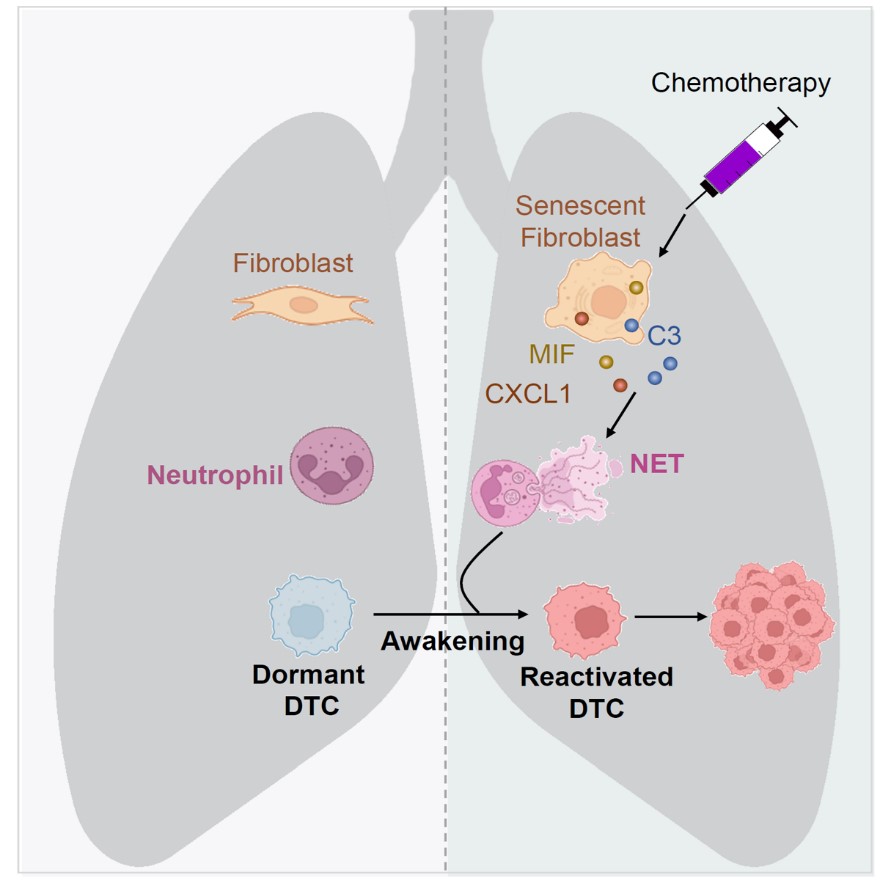Breast cancer often relapses in distant organs even when complete regression of primary tumors is achieved after initial treatment. Dormant and persistent disseminated tumor cells (DTCs) have been observed in animals with non-metastatic disease, which cannot be targeted by systemic chemotherapy.
It was predicted that it is the awakening of dormant DTCs in distant organs that results in metastatic relapse after the asymptomatic period. However, direct evidence for such awakening was lacking, and it was unclear how exactly chemotherapy might affect DTCs that are already in dormancy.
In a study published in Cancer Cell, researchers from the Shanghai Institute of Nutrition and Health (SINH) of the Chinese Academy of Sciences and the collaborators developed a novel recombinase-based lineage tracing system. By using this system, they for the first time directly observed the awakening of DTCs after persistent dormancy, and investigated the effect of chemotherapeutic drugs during the process.
Prof. HU Guohong's group at SINH designed and established a genetic system, DormTracer, which consists of a doxycycline-inducible p27K- fused with the Cre recombinase and a mCherry locus after a LoxP-flanked Stop element. It traces DTC dormancy history using a mutant form of the dormancy marker p27. Cre-p27K- expression is induced by doxycycline, but its recombinase function would be inhibited in proliferative cells due to p27 cytoplasmic retention and degradation. Once cells enter dormancy, it cleaves the Stop element and activates mCherry permanently.
With this novel tool, researchers provided the evidence of DTC dormancy awakening after chemotherapy which resulted in lung relapse. They also revealed the mechanism driving this awakening, which involves fibroblast senescence and neutrophil extracellular trap (NET) formation.
Importantly, researchers offered a combination treatment strategy of chemotherapy and senolytic cocktail to counter this detrimental effect of chemotherapy and suppress tumor relapse. Dasatinib and Quercetin (DQ), the senolytic drugs, were tested in clinical trials to target senescent cells. DQ treatment promoted apoptosis of chemotherapy-induced senescent fibroblasts, and thus eliminated lung relapse. Combining chemotherapy with DQ achieved therapeutic control of both primary tumors and lung relapse.
DormTracer is a useful tool for future investigation into dormancy regulation and intervention. The study provides an explanation that chemotherapy-induced transition of dormant DTCs to metastatic proliferation is responsible for tumor relapse after treatment. Resolution of such side effects of chemotherapy with the senolytic cocktail offers hope to improve therapy efficacy and has led to the launch of a clinical trial.

Chemotherapy awakens dormant disseminated tumor cells in lung. (Image by Prof. HU Guohong's group)






